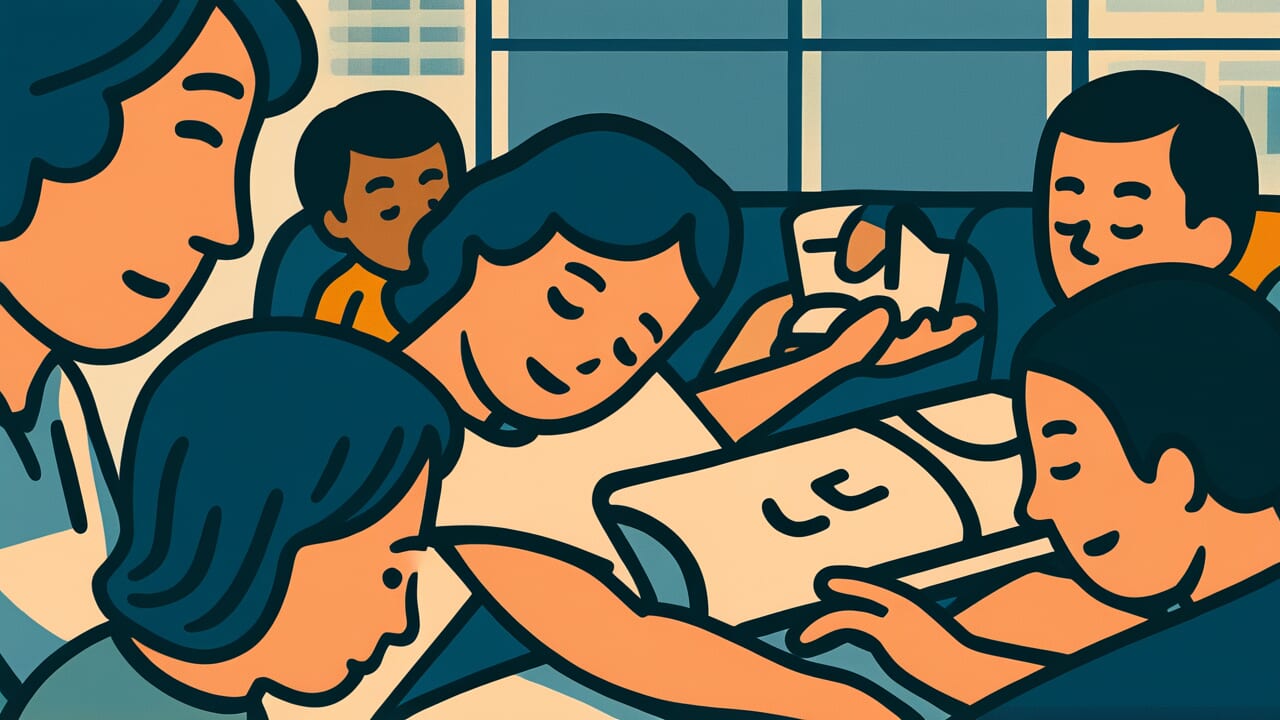How to Read “you snooze you lose”
“You snooze, you lose”
[yoo snooz, yoo looz]
All words are common and easy to pronounce.
Meaning of “you snooze you lose”
Simply put, this proverb means if you hesitate or delay taking action, someone else will grab the opportunity you missed.
The saying uses “snooze” to mean more than just sleeping. It refers to any kind of delay or hesitation. When you snooze your alarm clock, you get a few extra minutes of sleep. But in life, snoozing means putting off important decisions or actions. The “lose” part is straightforward – you miss out on something good.
This wisdom applies to many everyday situations. Job openings get filled by the first qualified person who applies. Concert tickets sell out to people who buy them immediately. Good apartments get rented to whoever shows up first with a deposit. The best deals at garage sales go to early shoppers.
What makes this saying powerful is how it captures a basic truth about competition. Opportunities don’t wait around forever. While you’re thinking about whether to act, someone else is already moving forward. The proverb reminds us that timing matters just as much as being qualified or interested.
Origin and Etymology
The exact origin of this specific phrase is unknown, though it became popular in American English during the mid-1900s. The saying likely developed from the common experience of oversleeping and missing important events. People have always understood the connection between delay and missed chances.
The phrase gained widespread use as American society became more fast-paced and competitive. During the post-war economic boom, opportunities in jobs, housing, and consumer goods moved quickly. People needed a short way to express the importance of acting fast. The rhyming words made it catchy and memorable.
The saying spread through everyday conversation, workplace advice, and eventually media and advertising. It became especially common in business contexts where timing determines success. Sales teams used it to motivate quick action. The phrase captured the spirit of an era when being first often meant winning.
Interesting Facts
The word “snooze” originally meant to sleep lightly or doze. It comes from an old word meaning to breathe heavily during sleep. The modern meaning of delaying or postponing developed from snooze buttons on alarm clocks.
This proverb uses perfect rhyme, making it stick in memory easily. Rhyming sayings spread faster because people remember them better. The four-word structure also makes it quick to say and hard to forget.
Usage Examples
- Manager to employee: “The promotion went to someone who applied yesterday – you snooze you lose.”
- Friend to friend: “Those concert tickets sold out while you were thinking about it – you snooze you lose.”
Universal Wisdom
This proverb reveals a fundamental tension in human nature between caution and action. Our brains evolved to carefully evaluate risks before making moves. This careful thinking kept our ancestors alive in dangerous situations. But the same caution that once protected us can now cost us opportunities in a fast-moving world.
The wisdom touches on something deeper about how resources and chances work in any group. Good opportunities are naturally limited. Whether it’s the best hunting grounds, the safest shelter, or the most reliable partner, there’s usually competition for valuable things. Those who recognize opportunity quickly and act decisively often come out ahead. Those who spend too much time weighing options may find nothing left to choose from.
This creates an interesting psychological challenge. We want to make smart, well-considered decisions. But we also need to move fast enough to stay competitive. The proverb suggests that sometimes the cost of overthinking exceeds the benefit of perfect planning. It points to a truth about timing – that being reasonably ready and quick often beats being perfectly prepared but slow. This tension between thoughtfulness and speed has shaped human behavior for thousands of years, which explains why the wisdom feels both urgent and timeless.
When AI Hears This
Modern life creates fake urgency around most opportunities. Apps send push notifications claiming “limited time offers.” Social media shows others succeeding while you hesitate. This artificial speed-up makes normal thinking feel too slow. Your brain gets trained to panic about missing out constantly.
Humans developed two competing survival systems over millions of years. One system says “think carefully before acting” to avoid danger. The other says “grab resources quickly” before others take them. Modern society triggers the grabbing system constantly through manufactured scarcity. This creates internal conflict between wisdom and speed.
The beautiful irony is that most “urgent” opportunities aren’t actually rare. Real chances worth taking usually give you time to decide properly. Humans who learn to ignore fake urgency often succeed more. They save energy for moments that truly matter. This ancient wisdom beats artificial speed every time.
Lessons for Today
Living with this wisdom means developing better instincts about when to think and when to act. The key insight is learning to recognize which situations require immediate action versus those that benefit from careful planning. Some opportunities have clear deadlines or obvious competition, making quick decisions necessary. Others allow time for research and consideration.
The challenge lies in building confidence to act on incomplete information. Most people delay because they want more certainty or better conditions. But waiting for perfect circumstances often means waiting forever. The wisdom suggests developing comfort with “good enough” decisions when timing matters more than perfection. This doesn’t mean being reckless, but rather accepting that some risk comes with any worthwhile opportunity.
In relationships and group settings, this principle affects how we handle shared opportunities and resources. Teams that can make decisions quickly often outperform those that get stuck in endless discussion. Communities that respond rapidly to challenges tend to adapt better than those that debate too long. The wisdom reminds us that collective hesitation can be just as costly as individual delay. Understanding this helps us balance thorough consideration with timely action, both personally and in our interactions with others.



Comments